- About the Department
- Faculty Profile
- Courses offered
- PO and CO
- Certificate / Add-on courses
- Result and student progression
- Departmental Activities and Achievements
- MOU with other Institution
- Alumni
- Photo Gallery
There is a very good camaraderie and coordination between the teachers, students and the laboratory staff which is a prized possession of the department. The department has received grants from UGC under Minor project schemes and is a proud recipient of grant for infrastructural development under the ‘BOOST’ scheme of the Department of Biotechnology, Government of West Bengal. The department is also associated with the Microbiologists Society of India, a National body for encouraging teaching and research in Microbiology through various activities. Under the sincere efforts of the teachers the department has been successful in producing students with good academic proficiencies and many of students who have studied in this department are well settled today with a sound career.
Apart from academic activities the students are also encouraged to take part in extracurricular activities conducted by the department and the college. The department which started its journey way back in 1999 has traversed a long way and has a long way to go. There is a sincere hope that the department will continue to give its best and impart good education for all future batch of students who will take up Microbiology as their course of study.
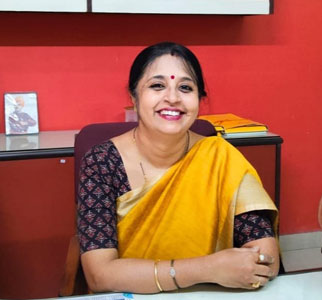
Dr. Sharmila Chakraborty
Designation: Associate Professor
Email: sharmilachaksmv@gmail.com
Phone Number: 9433281924Get Detail »
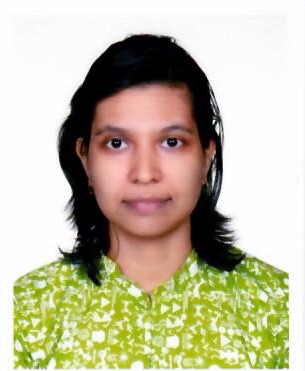
Dr. Nabanita Naskar
Designation: Assistant Professor
Email: g.nabanitanaskar94@gmail.com
Phone Number: 9433580581Get Detail »
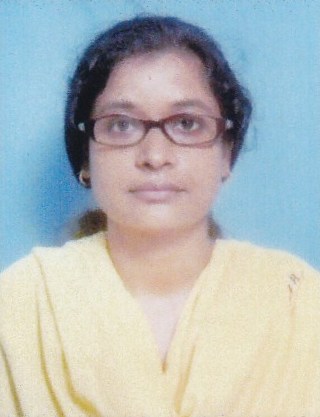
Smt. Pamela Dutta Roy *
Designation: SACT
Email: duttaroypamela@gmail.com
Phone Number: 9830352326Get Detail »
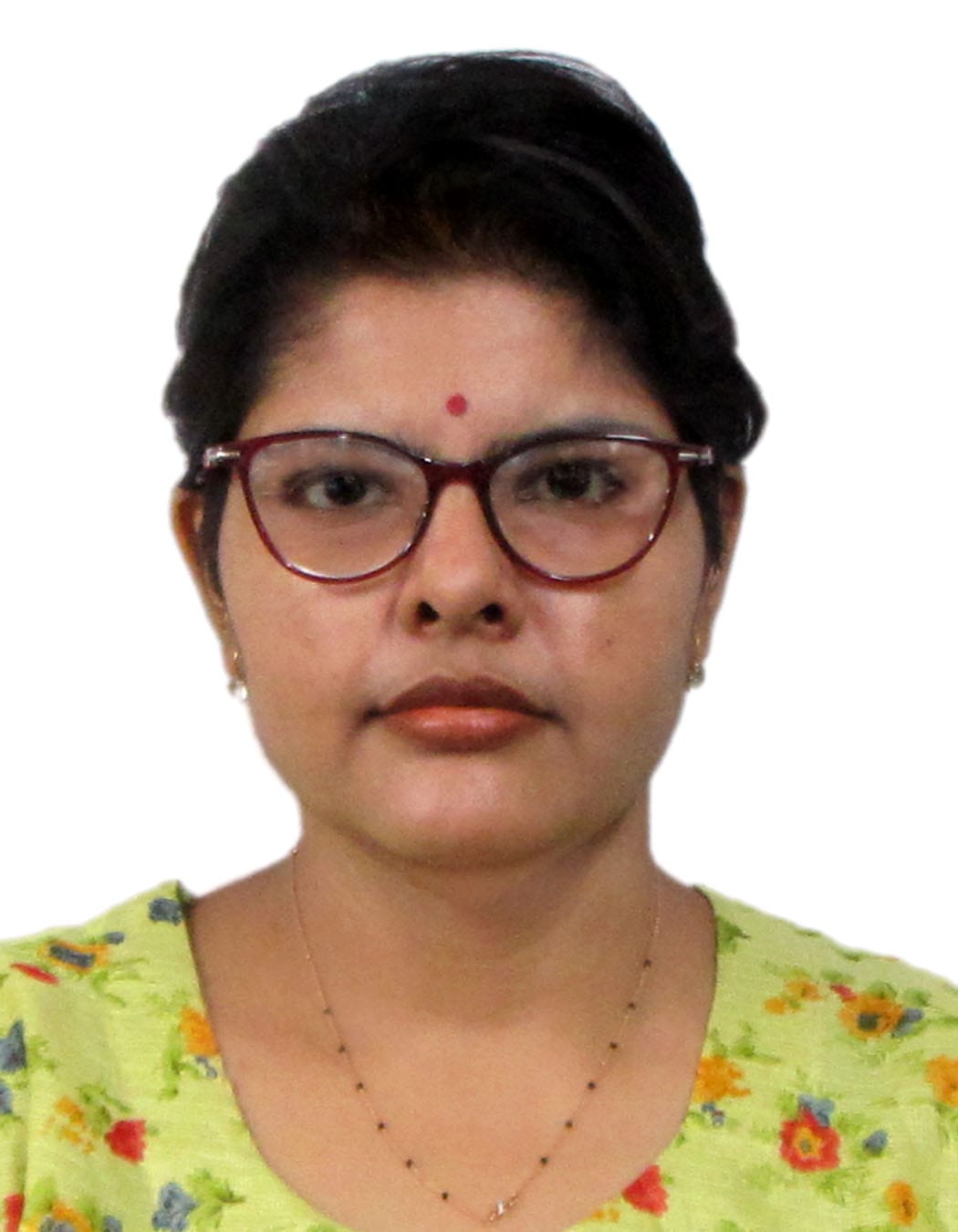
Smt. Aryoma Chakraborty *
Designation: SACT
Email: aryama25@gmail.com
Phone Number: 8017260235Get Detail »
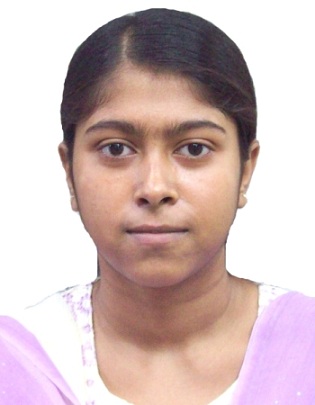
Smt. Madhuwrita Saha
Designation: SACT
Email: madhuwrita.saha@gmail.com
Phone Number: 8902047350Get Detail »
- The CCF-2022 System (Academic Session 2023-24 onwards): Four-Year (8 Semester) Honours and Honours with research courses with Microbiology Major
- The CBCS-2018 System (Academic Session 2018-19 onwards): Three-Year (Honours) in Microbiology under CBCS-2018
- The 1+1+1 System, 2010 (Academic Session 2010-11 onwards): Three year B.Sc. (Honours) Courses in Microbiology, 2010.
PROGRAMME AND COURSE OUTCOME OF MICROBIOLOGY HONOURSAND
UNDER CBCS
Programme Outcome:
- Extensive knowledge of classical Microbiology and contemporary subjects spanning various aspects of
basic microbiology such as Bacteriology, Virology, Biochemistry, Microbial Physiology, Immunology,
Cell Biology, Molecular Biology, Genetics, Systems Biology, Immunology and Molecular biology. In
addition to this the course also covers the applied aspects of Microbiology such as Industrial Microbiology,
Food and Dairy Microbiology, Environmental Microbiology and Medical Microbiology. - The course aims to train the students to learn and appreciate the biological diversity of microbial forms so
that they can explore and explain the processes used by microorganisms for their replication, survival, and
interaction with their environment, hosts, and host populations. They will become aware of the important
role microorganisms played in maintenance of a clean and healthy environment. They will learn the role of
microorganisms in plant, animal and human health and disease. - The course also aims to expose the students to various biotechnological applications of microorganisms,
the industrially important substances produced by microorganisms and the unique role of microbes in
genetic modification technologies. - The practical aspects of the programme aim to make the students familiar with scientific methodology and
execution of experiments. Students will develop the ability to think critically and to read and analyse
scientific literature. Students will acquire and demonstrate proficiency in good laboratory practices in a
microbiological laboratory and be able to explain the theoretical basis and practical skills of the
tools/technologies commonly used to study this field. - There is immense scope of hands on training of microbiological laboratory through extensive practical
classes and learning of microbes handling skill and exposure to extensive knowledge of molecular
biological techniques used in research works. - Graduates of the B.Sc. (Honours) Microbiology programme will understand and evaluate the impact of
new research discoveries in the field of life sciences, and will be able to pursue a wide range of careers,
including biological and medical research in higher education institutions as well as careers in public and
global health, scientific writing, environmental organizations, in food industry, pharmaceuticals and
biotechnology industries. They also have the option of taking up teaching as a profession.
| Semester | Course Topic | Course Outcome |
| I | CC-1: Introduction to Microbiology and Microbial Diversity |
• To understand the history of development of Microbiology starting from the early years• To study the diversity of Microbial World and Systems of classification of microorganisms• To understand the scope of microbiology |
| CC-2: Bacteriology | • To understand bacteriology including the morphology, metabolism and nutrition patterns of various bacteria, their systematics and taxonomic positions.• To study the important archaeal and eubacterial groups in order to understand the basic microorganisms |
|
| II | CC-3: Biochemistry | • To understand the basic concepts of Bioenergetics and thermodynamics• To study and understand the macromolecules• To study the different types of macromolecules, their structure, function and role in metabolism in living organisms• To apply the basic knowledge for studying the metabolism of microorganisms |
| CC-4: Cell Biology | • To study the organization of cells
• To understand the detailed structure of all • To understand the process of cell signaling • To understand the process of cell cycle, cell |
| III | CC-5: Virology | • To study the Nature and Properties of Viruses and Bacteriophages• To Study Viral Transmission, Salient features of viral nucleic acids and Replication• To understand the role of viruses in cancer and different viral diseases• To study the importance and application of virology |
| C-6: Microbial Physiology and Metabolism |
• To study Effect of Environment on Microbial growth and related Nutrient uptake and Transport• To Study Chemoheterotrophic, Chemolithotrophic and Phototrophic Metabolism• To study the role of Nitrogen Metabolism in Microbial Physiology |
|
| CC-7: Molecular Biology | • To Study Structures of DNA and RNA / Genetic Material• To study Replication of DNA in Prokaryotes and Eukaryotes• To study Transcription and Post Transcriptional modifications in Prokaryotes and Eukaryotes• To study Transcription of DNA and Regulation of gene Expression in Prokaryotes and Eukaryotes |
|
| SEC-A
A1. Microbial Quality Control in |
• To learn the microbiological laboratory and safe practices• To determine microbes in food and pharmaceutical samples• Learning the importance of pathogenic organisms in food and water Learning the principles of food safety and microbial standards of different foods and water |
|
| IV | CC-8: Microbial Genetics | • Learning of Genome Organization and Mutagenesis and Molecular basis of mutations• Learning the Mechanisms of Genetic Exchange Conjugation, Transformation, Transduction• To study Phage Genetics and Plasmids• To study Transposable elements and Uses of transposons and transposition• |
| CC-9: Environmental Microbiology | • Students develop an understanding about Microorganisms and their Habitats Structure and function of ecosystems in of plant organic matter• Learning of Microbial Interactions, Microbe-Plant interaction and Microbe- animal interaction• They develop an understanding of Biogeochemical Cycling, Waste Management and Microbial Bioremediation |
|
| CC-10: Recombinant DNA Technology |
• To learn Milestones in genetic engineering and biotechnology and Applications of Recombinant DNA Technology• They develop an understanding of Tools and Strategies of Molecular Cloning• Learning of Methods in Molecular Cloning• Learning of DNA Amplification and DNA sequencing• Learning of Construction and Screening of Genomic and cDNA libraries |
|
| SEC-B
B2. Microbiological Analysis of Air |
• To learn about Aero Microbiology, sample collection, analysis and control measures• To learn Water Microbiology, analysis, treatment and control measures |
|
| V | CC-11: Food and Dairy Microbiology |
• Student develop an understanding of the concepts of Foods as a substrate for microorganisms and Intrinsic and extrinsic factors that affect growth and survival of microbes in foods• Learning of Microbial spoilage of various foods and different Principles and methods of food preservation• To study the Food borne diseases and Food sanitation and control• Understanding Fermented foods, Probiotics and their Health benefits• Knowledge on Cultural and rapid detection methods of food borne pathogens in foods and introduction to predictive microbiology |
| CC-12: Industrial Microbiology | • To learn the Isolation of industrially important microbial strains and fermentation media• Learning of Types of fermentation processes, bio-reactors and measurement of fermentation parameters• Knowledge on Down-stream processing and |
| Enzyme immobilization
• To learn Microbial production of industrial |
||
| DSE-A
A1. Microbial Biotechnology |
• To learn microbial, industrial and therapeutic biotechnology with its application• To learn the purification and recovery of microbial products• To learn about the application of microbes in biotransformation, bioenergy and environment• Learning about RNAi and IPR |
|
| DSE-B
B1. Inheritance Biology |
• To understand the historical development in
genetics • To learn about the Mendelian principles, linkage and crossing over • To learn the structural organization of Chromosomes, extra chromosomal inheritance and recombination • Learning human and quantitative genetics |
|
| VI | CC-13: Immunology | • To understand Concept of Innate and Adaptive immunity and Contributions of scientists to the development of field of immunology• To study the Immune Cells and Organs, Antigens and Antibodies and Immunological Disorders and Tumor Immunity• Learning of the role of the Major Histocompatibility Complex and Complement System in Immunology• Learning of Immunological Techniques for the benefit of mankind |
| CC-14: Medical Microbiology | • To study the Normal microflora of the human body and host pathogen interaction• Learning of diseases of various organ systems caused by Bacterial, Viral, Fungal and Protozoan infections• Gaining knowledge on Collection, transport and culturing of clinical samples and principles of different diagnostic tests• To learn the Antimicrobial agents their General characteristics and mode of action |
|
| DSE-A
A3. Plant Pathology |
• To understand the history of plant pathology.
• Learning about the overall stages of development of a plant disease, its |
| interaction, mechanism and the control measures• To learn about some specific plant diseasesgiving emphasis on its etiological agent, symptoms, dissemination, life cycle and preventive measures |
|
| DSE-B | • To understand different techniques of |
| B3. Instrumentation and Biotechniques |
instrumentation giving emphasis on microscopy, chromatography, electrophoresis, spectrophotometry and centrifugation |
Result
| Year of passing | No. of students appeared | No. of students passed | Pass percentage | Highest Scorer and Score |
|---|---|---|---|---|
| 2018 | 13 | 13 | 100 | Satwika Das (61.75%) |
| 2019 | 12 | 12 | 100 | Ankita Roy Talukder (66.75%) |
| 2020 | 15 | 15 | 100 | Smriti Ghosh (77.625%) |
| 2021 | 23 | 22 | 95 | Rima Jana CGPA 8.362 |
| 2022 | 16 | 12 | 75 | Nimisha Majumdar CGPA 9.082 |
| 2023 | 18 | 18 | 100 | Jissani Das CGPA 8.688 |
STUDENTS’ PROGRESSION TO HIGHER EDUCATION
| Year of passing | Pass percentage | Percentage of students enrolling for M.Sc | Percentage of students in other professional courses |
|---|---|---|---|
| 2018 | 100 | 69.23 | 15.38 |
| 2019 | 100 | 91.66 | NIL |
| 2020 | 100 | 73.33 | 20 |
| 2021 | 95 | 69.56 | 4.34 |
| 2022 | 75 | 62.5 | NIL |
| 2023 | 100 | 44.44 | 5.55 |
Departmental Activities and Achievements:
Remedial classes: Extra classes (apart from regular classes) are offered when necessary. Additional materials are provided for better learning and understanding. Students are identified as advanced and slow learners through continuous internal evaluation, and remedial or extra classes are provides as and when required.
Participative and experiential learning (seminars, workshops, wall magazines, poster presentation, educational tour, field work etc.):
The Department of Microbiology, Sammilani Mahavidyalaya in collaboration with Microbiologists Society of India had organized a Food festival named “Microbiome Food Festival 2020” on 28th of February 2020. The venue of the festival was at the college campus. The food for this was exclusively fermented food prepared by the students of Semester II and Semester III.
The Department of Microbiology, Sammilani Mahavidyalaya had organized an industrial visit to Vivekananda Institute of Biotechnology, Nimpith on 2nd December, 2022. The students of Semester V (total 15 of Batch 2020-2023) of Microbiology Honours were taken for this visit along with all the faculty members and laboratory staff of the department. The objective of this industrial visit is to offer the students an insight into the working of a factory or industrial unit. They gain knowledge about the large scale productions done in industries and how the microorganisms play beneficial role in helping the society by producing various fermented products.
The Department organized Laboratory Visit to Department of Life Sciences, Presidency University, Kolkata on 28.09.2022. The primary aim of the event was to imbibe the undergraduate students with the impetus for future research, thereby encouraging them in the process. The visit was under the DST-SERB project under the guidance of Dr Susmita Mondal, faculty of Life Sciences department, Presidency University, Kolkata.
The Department of Microbiology, Sammilani Mahavidyalaya had organized an industrial visit to Integrated Rural Development and Management Faculty Centre (IRDM), Ramakrishna Mission Ashrama, Narendrapur on 12th December, 2023. The students of Semester V (total 15 of Batch 2021-2024) of Microbiology Honours were taken for this visit along with all the faculty members of the department. The objective of this industrial visit is to offer the students an insight into the working of a factory or industrial unit. They gain knowledge about the large scale productions done in industries and how they are playing beneficial role towards the society.
Activities of the students (co-curricular and extra-curricular):
The department organizes various events like seminars, webinars, students’ interactive sessions and industrial and institute visits throughout the year. Orientation programmes are organized every year for the freshly admitted students. The students are also encouraged to participate in inter college competitions and activities. They also publish departmental wall magazines and organize cultural events for celebration of Teachers’ day, Fresher’s welcome and farewell programmes.
The Department had organised a Food festival named “Microbiome Food Festival 2020” on 28th of February 2020 in collaboration with the Microbiologists Society of India at the college campus. The food for this was exclusively fermented food prepared by the students of Semester II and Semester III. Dosa, Dahi bada, kimchi, Idli, Chole bature, Dhokla were some of the item served by the students. All the faculty members, Principal and students of the college were invited and all appreciated the festival. It was a grand success.
Departmental Achievements:
Ms Rima Jana received received Certificate of Recognition on being selected as the Best Student from Sammilani Mahavidyalaya during the academic session 2020-21.
Ms Jissani Das of Department of Microbiology received Certificate of Appreciation from Sammilani Mahavidyalaya for securing the highest marks under Choice Based Credit System in the year 2023.
The 4th semester students of Department of Microbiology, Sammilani Mahavidyalaya participated in poster presentation at Vijaygarh Jyotish Ray College in the year 2022.
Dr. Sharmila Chakraborty, was invited to act as Judge in the ONLINE STATE LEVEL P.G. STUDENT POSTER COMPETITION to observe World Antimicrobial Awareness Week, 2020
Dr. Sharmila Chakraborty, was invited to act as Judge in the Poster Presentation, Oral Presentation Skill Exibition on ‘Bio Nexus A New Axis For Advanced Biological Sciences 2023’ on 12th May 2023.
Dr. Sharmila Chakraborty, has been invited by Department of Biotechnology, The Neotia University, to chair a session in upcoming one-day symposium titled ‘Bio Nexus 2024: Unveiling The Wonders Of Modern Biotechnology’ on April 18, 2024 at The Neotia University campus.
Dr. Sharmila Chakraborty served as the Coordinator of Microbiologists Society, India for University of Calcutta (North zone) from 15th June 2020 to 14th June 2021.
STUDENTS’ PROGRESSION TO HIGHER EDUCATION - OUR ACHIEVERS
| Serial No. | Name of student | Year of Passing | Present status |
|---|---|---|---|
| 1. | Abul Hasan Sardar | 2002 | Assistant Professor, Sarsuna College, Kolkata |
| 2. | Shilpak Chatterjee | 2003 | Senior Scientist, Indian Institute of Chemical Biology, Kolkata |
| 3. | Rajat Pal | 2003 | HOD, School of Life Sciences, Sister Nivedita University, Kolkata |
| 4. | Anindita Sengupta | 2004 | Senior Scientist, AstraZeneca, Cambridge, UK |
| 5. | Mamon Dey | 2004 | Scientist III, Aurigene Discovery Technology, Bengaluru |
| 6. | Pradipto Sarkar | 2005 | Officer, Institute of Health and Hygiene, Kolkata |
| 7. | Siddharta Nandan | 2005 | Business Analyst, Labbantage Solutions Pvt. Ltd, Kolkata |
| 8. | Somsubhra Chowdhury | 2006 | Assistant Professor and Head, Department of Biotechnology, SNU |
| 9. | Ishita Rehman | 2009 | Post Doctoral Fellow, MD Anderson Cancer Centre, Texas |
| 10. | Dipika Shaw | 2011 | Assistant Professor, Jawharlal Nehru Medical College, Wardha, Maharashtra |
| 11. | Suchintankar | 2014 | Quality Control Microbiologists, Cipla Ltd. |
| 12. | Nandini Gupta | 2015 | Junior Scientific Officer, Medica Superspeciality Hospital, Kolkata |
| 13. | Shrestha Sengupta | 2016 | Senior Executive, Life Cells |
MOU and related activities
Collaborative initiatives under MOU:
- In July 2020, Department of Microbiology & IQAC of Raidighi College and Department of Microbiology & IQAC of Sammilani Mahavidyalaya jointly organised 3 national-level webinars which focussed on the recent trends in research methodologies in different fields of modern biological sciences. The webinars constituted a collaborative webinar series entitled NATIONAL LEVEL 3-DAY WEBINAR SERIES on Research Methodologies ~ “Science amidst Covid Pandemic: Life Goes On…..”
- Invitation to Dr. Sharmila Chakraborty, to act as Judge in the ONLINE STATE LEVEL P.G. STUDENT POSTER COMPETITION to observe World Antimicrobial Awareness Week, 2020.
- A NATIONAL WEBINAR on Intellectual Property Rights: Awareness, Academics & Applicationswas organized jointly by the Department of Microbiology & IQAC of Raidighi College and Department of Microbiology & IQAC of Sammilani Mahavidyalaya on 25th September 2021.
- A NATIONAL WEBINAR on Career Prospects in Microbiology was organized jointly by the Department of Microbiology & IQAC of Raidighi College and Department of Microbiology & IQAC of Sammilani Mahavidyalaya on 2nd October 2021.
- Joint Practical Classes (CC8: conjugation experiment) of students of Department of Microbiology Sammilani Mahavidyalaya and Raidighi College was undertaken on 29th and 30th April, 2022 and on 25th and 26th May, 2023.
- Joint Practical Classes (DSEA1: yeast cell immobilization experiment) of students of Department of Microbiology Sammilani Mahavidyalaya and Raidighi College was undertaken on 11th and 18th November, 2022.
- State-level seminar organized jointly by the Department of Microbiology & IQAC of Raidighi College and Department of Microbiology & IQAC of Sammilani Mahavidyalaya on Research Methodology with Emphasis on Protein-Protein Interaction on 5th December, 2023.
STUDENTS’ PROGRESSION TO HIGHER EDUCATION - OUR ACHIEVERS
| Serial No. | Name of student | Year of Passing | Present status |
|---|---|---|---|
| 1. | Abul Hasan Sardar | 2002 | Assistant Professor, Sarsuna College, Kolkata |
| 2. | Shilpak Chatterjee | 2003 | Senior Scientist, Indian Institute of Chemical Biology, Kolkata |
| 3. | Rajat Pal | 2003 | HOD, School of Life Sciences, Sister Nivedita University, Kolkata |
| 4. | Anindita Sengupta | 2004 | Senior Scientist, AstraZeneca, Cambridge, UK |
| 5. | Mamon Dey | 2004 | Scientist III, Aurigene Discovery Technology, Bengaluru |
| 6. | Pradipto Sarkar | 2005 | Officer, Institute of Health and Hygiene, Kolkata |
| 7. | Siddharta Nandan | 2005 | Business Analyst, Labbantage Solutions Pvt. Ltd, Kolkata |
| 8. | Somsubhra Chowdhury | 2006 | Assistant Professor and Head, Department of Biotechnology, SNU |
| 9. | Ishita Rehman | 2009 | Post Doctoral Fellow, MD Anderson Cancer Centre, Texas |
| 10. | Dipika Shaw | 2011 | Assistant Professor, Jawharlal Nehru Medical College, Wardha, Maharashtra |
| 11. | Suchintankar | 2014 | Quality Control Microbiologists, Cipla Ltd. |
| 12. | Nandini Gupta | 2015 | Junior Scientific Officer, Medica Superspeciality Hospital, Kolkata |
| 13. | Shrestha Sengupta | 2016 | Senior Executive, Life Cells |






